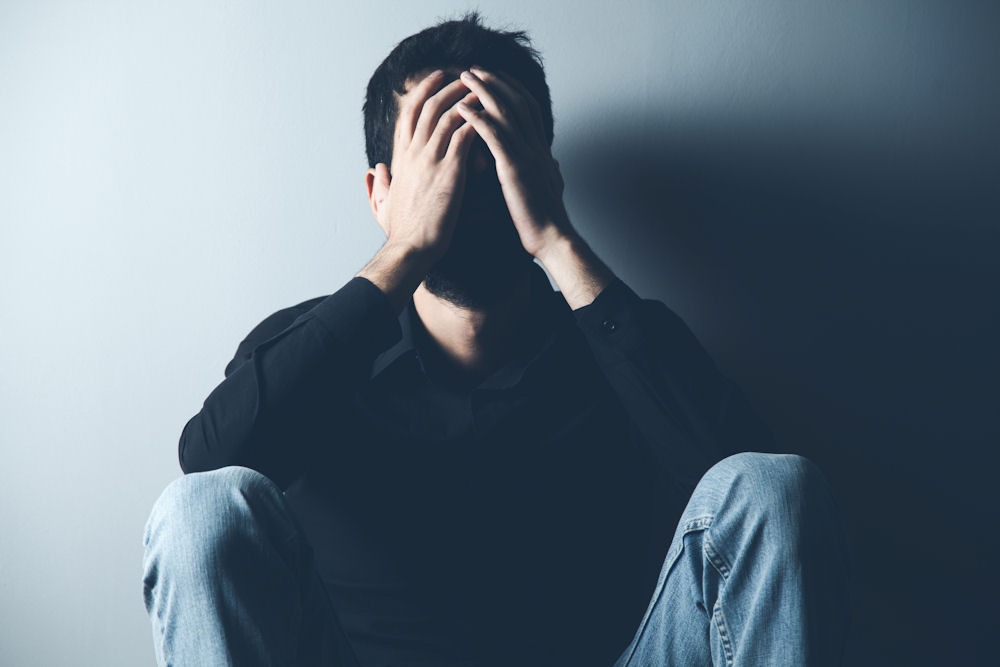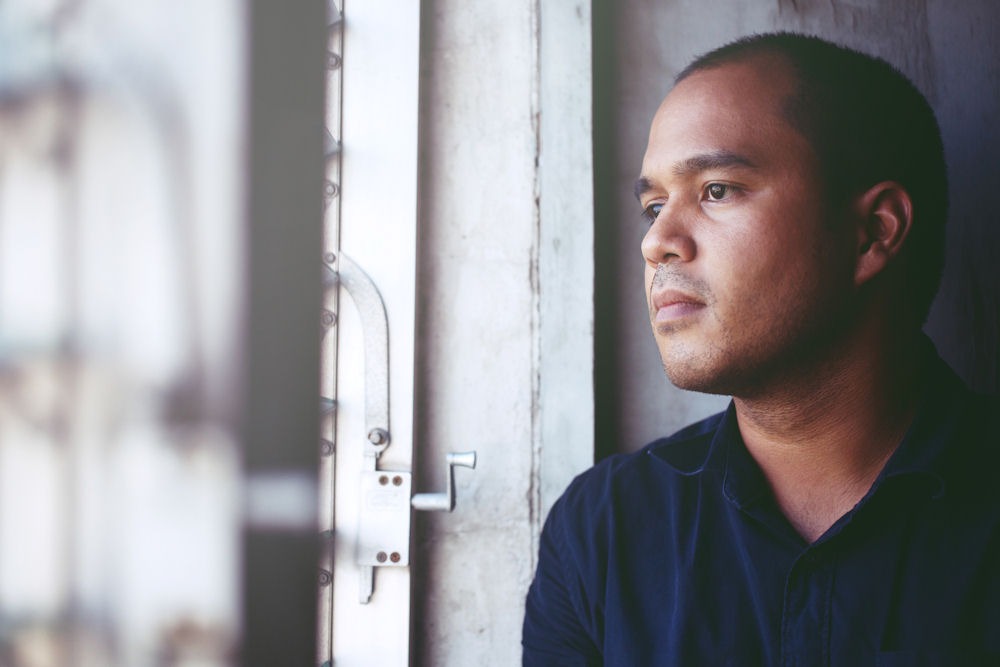Alcohol can affect the brain in many ways. While most people are familiar with the short-term effects of drinking, some may not know that alcohol can also cause more serious mental health problems. One of these problems is called alcohol-induced psychosis.
Alcohol-induced psychosis is not the same as being drunk or hungover. It involves a loss of contact with reality, which can include seeing things that are not there or believing things that are not true. This condition can happen during heavy drinking or when someone suddenly stops drinking after long-term use.
At First Steps Recovery in Fresno County, California, we understand how frightening and confusing alcohol-induced psychosis can be for both patients and their families. Our experienced team specializes in treating these complex conditions with compassion and evidence-based care.
What Is Alcohol-Induced Psychosis?
Alcohol-induced psychosis happens when drinking alcohol causes someone to lose touch with reality. This means they might see, hear, or believe things that aren’t real. It’s different from just being drunk because the symptoms are much more serious and can last longer.
When someone has alcohol psychosis, their brain isn’t working normally. The alcohol has changed how their brain processes information, making it hard to tell what’s real and what isn’t. This can happen while someone is drinking heavily or when they stop drinking suddenly after using alcohol for a long time.
The condition is also called alcoholic psychosis. Both terms describe the same problem – psychotic symptoms that are directly caused by alcohol use or withdrawal.
Common Symptoms of Alcoholic Psychosis
The main symptoms of alcohol-induced psychosis include hallucinations, paranoia, delusions, and confusion. These symptoms are much more severe than the typical effects of drinking. Hallucinations happen when someone sees, hears, or feels things that aren’t actually there. Common examples include:
- Hearing voices when no one is speaking
- Seeing shadows or people that don’t exist
- Feeling like bugs are crawling on their skin
Paranoia: Paranoia means feeling suspicious or scared without a good reason. Someone might think others are trying to hurt them or are plotting against them.
Delusions: Delusions are strong beliefs that aren’t based in reality. A person might believe they have special powers or that someone is controlling their thoughts.
Confusion and disorientation can make it hard to recognize familiar people or places. The person might not know what day it is or where they are. Here’s how normal alcohol effects compare to alcohol psychosis symptoms:
| Normal Alcohol Effects | Alcohol Psychosis Symptoms |
| Feeling relaxed | Hearing voices |
| Poor judgment | Extreme paranoia |
| Slurred speech | False beliefs |
| Stumbling | Severe confusion |
| Sleepiness | Not knowing where you are |
Can Alcohol Cause Schizophrenia?
Alcohol doesn’t directly cause schizophrenia, but it can trigger symptoms that look similar to schizophrenia. This is more likely to happen if someone already has a family history of mental illness.
The key difference is that alcohol-induced psychotic disorder is usually temporary. When someone stops drinking and gets treatment, the symptoms often go away. Schizophrenia, on the other hand, is a long-lasting condition that continues even without alcohol.
People who already have schizophrenia may find that alcohol makes their symptoms worse. Drinking can make it harder to manage their condition and may lead to more frequent episodes. For individuals seeking professional help, specialized programs for schizophrenia treatment in California can provide the support needed to manage symptoms and improve quality of life.
What Causes Alcohol-Induced Psychosis?

Alcohol changes how the brain works by affecting important chemicals called neurotransmitters. Two key chemicals – dopamine and glutamate – help brain cells communicate with each other. When alcohol disrupts these chemicals, it can sometimes lead to psychotic symptoms.
Several factors increase the risk of developing alcohol psychosis:
- Heavy, long-term drinking: The more someone drinks and the longer they drink, the higher their risk
- Family history: Having relatives with mental illness or addiction increases risk
- Sudden withdrawal: Stopping alcohol abruptly after heavy use can trigger symptoms
- Poor nutrition: Not getting enough vitamins, especially thiamine (vitamin B1), can contribute to the problem
Any type of alcohol can potentially cause these problems. The risk comes from how much and how often someone drinks, not from the specific type of alcohol.
Alcohol-Induced Psychosis vs Delirium Tremens
Delirium tremens (DTs) is another serious condition that can happen during alcohol withdrawal, but it’s different from alcohol-induced psychosis. DTs include severe shaking, fever, and a racing heart, along with confusion and hallucinations. Here’s how they compare:
| Alcohol-Induced Psychosis | Delirium Tremens (DTs) |
| Mainly hearing voices | Mainly seeing things |
| Paranoid thoughts | Severe shaking |
| Confusion | High fever |
| It can happen during drinking or withdrawal | Only happens during withdrawal |
| Lower risk of seizures | High risk of seizures |
Both conditions are medical emergencies that require immediate professional help.
Alcohol-Induced Psychosis Treatment
Treating alcohol-induced psychosis involves addressing both the psychotic symptoms and the underlying alcohol problem. Treatment typically happens in stages.
Medical Detox and Withdrawal Management
The first step is often medically supervised detox. This means stopping alcohol use while doctors and nurses monitor for dangerous symptoms. Medications like benzodiazepines may help control withdrawal symptoms, while antipsychotic medications can help with hallucinations and delusions.
At First Steps Recovery, our detox program provides 24/7 medical supervision to ensure safety during this critical period.
Rehabilitation Programs
After alcohol detox, rehabilitation programs help people learn to live without alcohol. Inpatient rehab involves staying at a treatment facility, while outpatient programs allow people to live at home while attending therapy sessions. These programs typically include:
- Individual therapy
- Group therapy
- Education about addiction and mental health
- Life skills training for managing triggers and stress
Mental Health Treatment
Many people with alcohol-induced psychosis benefit from specialized therapy approaches like cognitive-behavioral therapy (CBT) or dialectical behavior therapy (DBT). These therapies help people understand their thoughts and feelings while developing healthy coping skills.
Recovery and What to Expect
Most people with alcohol-induced psychosis can recover fully with proper treatment. The symptoms usually improve within days to weeks of stopping alcohol and starting treatment. Recovery time depends on several factors:
- How severe the symptoms are
- How long someone has been drinking heavily
- Whether they have other mental health conditions
- How quickly they get treatment
The good news is that alcohol-induced psychosis is usually not permanent. With the right support and treatment, most people see their symptoms fade as their brain heals from the effects of alcohol.
How to Prevent Alcohol-Induced Psychosis

While not everyone who drinks heavily will develop psychosis, there are ways to reduce the risk.
Recognize warning signs early: Pay attention to changes in thinking or perception after drinking. Early signs might include increased paranoia, mild hallucinations, or unusual confusion.
Get help for alcohol problems: If controlling drinking becomes difficult, professional help is available. Early intervention can prevent more serious complications.
Maintain good overall health: Eating well, getting enough sleep, and taking care of mental health can help protect the brain from alcohol’s harmful effects.
Alcohol-Induced Psychosis FAQs
How long does alcohol-induced psychosis last after stopping drinking?
Alcohol-induced psychosis typically lasts from a few days to several weeks after stopping alcohol use, depending on how much and how long someone was drinking.
Can someone develop alcohol-induced psychosis from drinking just once?
While rare, a single episode of very heavy drinking can trigger psychotic symptoms, especially in people who already have risk factors like a family history of mental illness.
What's the difference between alcohol-induced psychosis and alcoholic hallucinosis?
Alcoholic hallucinosis specifically refers to hearing or seeing things that aren’t there, while alcohol-induced psychosis includes hallucinations plus other symptoms like paranoia and delusions.
Can alcohol withdrawal cause paranoia days after stopping?
Yes, paranoia and other psychotic symptoms can occur during withdrawal and may continue for several days after someone stops drinking alcohol.
Do all people with alcohol-induced psychosis need hospitalization?
Not everyone requires inpatient treatment, but people with severe symptoms or those at risk of harming themselves or others often benefit from close medical supervision in a hospital setting.
Take the Next Step Toward Recovery
If you or someone you care about is experiencing symptoms of alcohol-induced psychosis, help is available. At First Steps Recovery in Fresno County, CA, our compassionate team specializes in treating complex conditions that involve both substance use and mental health symptoms. We provide comprehensive care that addresses all aspects of recovery in a supportive, understanding environment.
Contact us today to learn more about our treatment programs and how we can help you or your loved one on the path to recovery.
Dr. Belis Aladag is a board-certified physician in Addiction Medicine and Family Medicine, with a Master of Public Health from Johns Hopkins. She brings more than 15 years of experience in clinical care, medical education, and leadership. Recognized as a “Top Doctor” in Sacramento Magazine and Los Angeles Magazine, Dr. Aladag is dedicated to compassionate, evidence-based care and expanding access to mental health and addiction services.





